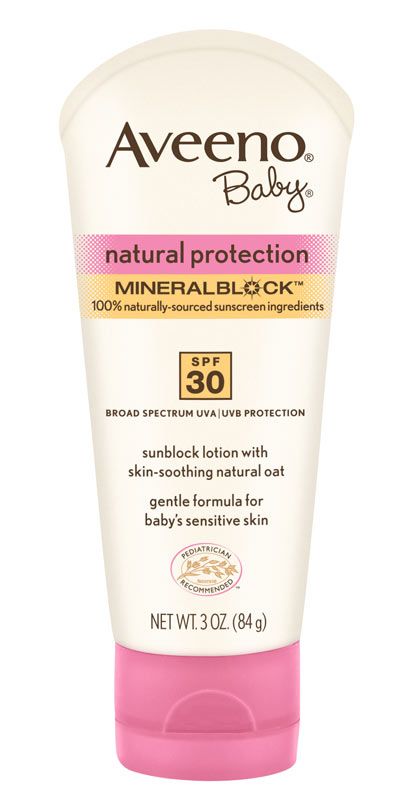 A Connecticut woman is asking a federal judge to certify a class of customers who purchased certain Aveeno brand sunscreens because Johnson & Johnson allegedly falsely advertised the products as only containing “naturally sourced” ingredients.
A Connecticut woman is asking a federal judge to certify a class of customers who purchased certain Aveeno brand sunscreens because Johnson & Johnson allegedly falsely advertised the products as only containing “naturally sourced” ingredients.
Plaintiff Heidi Langan is looking to represent Aveeno sunscreen customers in 16 states and the District of Columbia because those states don’t require that plaintiffs prove that a company violated its consumer protection laws knowingly.
Langan wants the labels on certain Aveeno sunscreens to be changed by Johnson & Johnson. The sunscreens at issue include some SPF varieties of Aveeno Baby Natural Protection Lotion Sunscreen, Aveeno Natural Protection Lotion Sunscreen and Aveeno Baby Brand Natural Protection Face Stick.
“Plaintiff seeks a declaration that the label claims were, and are, materially false and misleading, and an injunction requiring defendant to cease its use of the deceptive claims,” Langan wrote in her motion to certify the Aveeno natural class action lawsuit.
“The requested relief would insure to the benefit of all members of the class, as well as to all future consumers,” the Connecticut mother added.
If the judge doesn’t certify the multistate class, Langan is asking that the court consider at least certifying a class of Connecticut consumers who purchased Aveeno natural sunscreens.
Langan filed the Aveeno class action lawsuit in October 2013, alleging that Johnson & Johnson falsely advertised its Aveeno brand sunscreen products as “natural” when they contain synthetic ingredients.
Langan said in her Aveeno sunscreen class action lawsuit that she bought two tubes of Aveeno Baby Brand Natural Protection Sunscreen Lotion with Broad Spectrum SPF 30 at two separate stores in Connecticut in 2012 for her five-year-old son.
The Connecticut mother claimed that she chose to purchase the Aveeno sunscreen for her son because it stated on the product label that the sunscreen lotion provided “natural protection” and that it was made with “100% naturally-sourced sunscreen ingredients.”
She also said that she chose to spend more money on this product for her son over other sunscreen products because of the claim that it was “natural,” according to the Aveeno natural class action lawsuit.
Langan cited the description of the Aveeno Natural Protection Collection Sunscreen Products as stated on the company’s website:
“This extra gentle sunscreen, specifically designed for sensitive skin, combines skin-soothing ACTIVE NATURALS Oat and MINERALGUARD Technology. This technology features 100% naturally-sourced sunscreen ingredients, providing a more natural alternative, to ensure sensitive skin is protected and not irritated.”
However, despite these alleged “natural” claims, the class action lawsuit lists 23 unnatural, synthetic ingredients that are included in the Aveeno natural sunscreen lotion products as well as 11 in the bar or sunscreen stick.
“In direct contradiction to defendant’s representations, instead of receiving a natural product, [class members] received products that contained unnatural, synthetic ingredients,” the Aveeno class action lawsuit states.
Johnson & Johnson asked the Connecticut judge to dismiss the Aveeno sunscreen class action lawsuit, arguing that its sunscreen labels are not confusing to a reasonable person.
However, U.S. District Judge Jeffrey Alker Meyer refused to toss the Aveeno natural class action lawsuit in an April ruling, saying that most customers cannot tell the difference between natural and synthetic ingredients given the fact that there are chemicals in blueberries that have “scary sounding” names.
Langan is represented by Mark P. Kindall, Jeffrey S. Nobel and Nicole A. Veno of Izard Nobel LLP and by Joseph J. DePalma and Katrina Carroll of Lite DePalma Greenberg LLC.
Johnson & Johnson is represented by Wystan M. Ackerman of Robinson & Cole LLP and Harold P. Weinberger, Eileen M. Patt and Rachel L. Feinberg of Kramer Levin Naftalis & Frankel LLP.
The Aveeno Natural Sunscreen Class Action Lawsuit is Heidi Langan v. Johnson & Johnson Consumer Cos. Inc., Case No. 3:13-cv-01470, in the U.S. District Court for the District of Connecticut.
UPDATE: On March 13, 2017, a federal judge granted Class certification to a group of Aveeno baby wash consumers who claim Johnson & Johnson falsely marketed their products as “natural.” However, the judge declined to certify a proposed Class of Aveeno sunscreen users.
UPDATE 2: On June 7, 2017, Johnson & Johnson and Langan told the court that they reached a settlement in principle for the Aveeno “natural” sunscreen lawsuit and are ironing out the details. They asked the court to push back the filing deadline for their joint trial brief, giving them 30 more days to finalize the Aveeno sunscreen class action settlement.
UPDATE 3: February 2019, the Aveeno natural baby wash class action settlement is now open. Click here to file a claim.
UPDATE 4: On Jan. 13, 2020, Top Class Actions viewers started receiving checks in the mail from the Aveeno natural baby wash class action settlement worth as much as $14.97. Congratulations to everyone who filed a claim and got PAID!
ATTORNEY ADVERTISING
Top Class Actions is a Proud Member of the American Bar Association
LEGAL INFORMATION IS NOT LEGAL ADVICE
Top Class Actions Legal Statement
©2008 – 2025 Top Class Actions® LLC
Various Trademarks held by their respective owners
This website is not intended for viewing or usage by European Union citizens.















3 thoughts onConnecticut Woman Wants Judge to Certify Aveeno ‘Natural’ Sunscreen Class Action
UPDATE 2: On June 7, 2017, Johnson & Johnson and Langan told the court that they reached a settlement in principle for the Aveeno “natural” sunscreen lawsuit and are ironing out the details. They asked the court to push back the filing deadline for their joint trial brief, giving them 30 more days to finalize the Aveeno sunscreen class action settlement.
UPDATE: On March 13, 2017, a federal judge granted Class certification to a group of Aveeno baby wash consumers who claim Johnson & Johnson falsely marketed their products as “natural.” However, the judge declined to certify a proposed Class of Aveeno sunscreen users.
How do I get involved with the lawsuit/ Where can I file a claim?